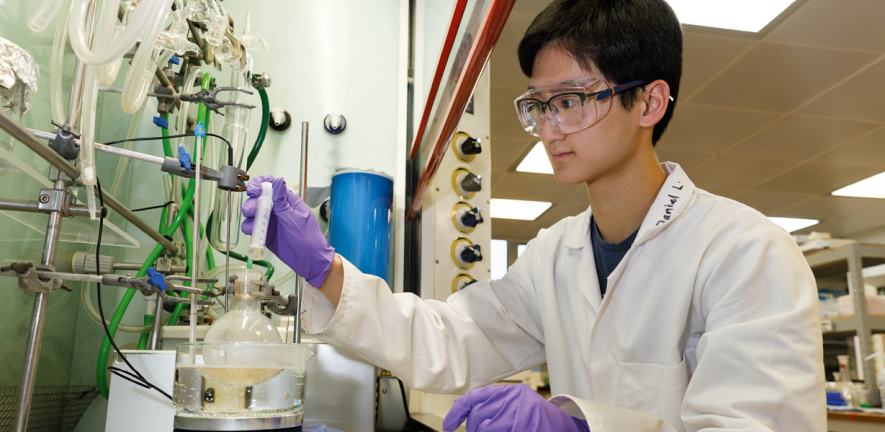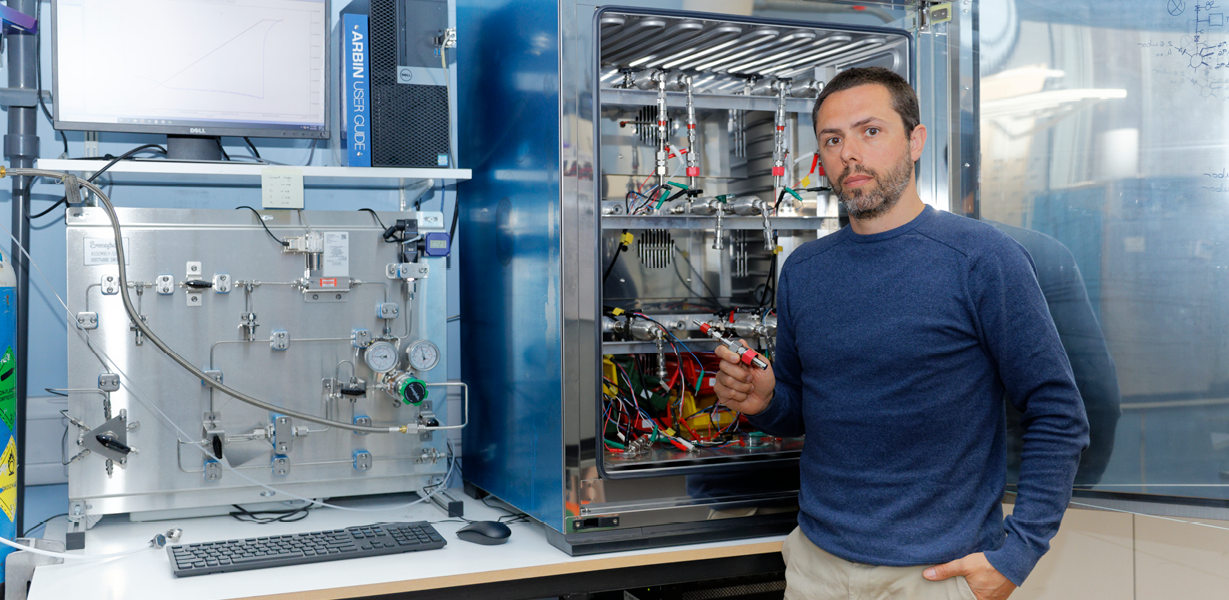
The Faraday Institution is the UK’s flagship battery research programme. “We have a real shortage of people in the UK going into science, engineering, technology and maths, and we needed to come up with innovative ways to attract people and diversify the pool of talent going into the battery sector,” says Dominic Grantley-Smith, who manages FUSE.
“I think FUSE is a fantastic programme. There aren’t many internships where undergrads get the experience of being embedded in a research group and to add their research directly to the field.”
FUSE
Daniel says: “My research interests have always centred around sustainable chemistry and climate science. I’ve done electrocatalysis, photocatalysis and carbon capture. But I had never done battery research – it felt really complicated, but after reading the project descriptions I thought I could contribute something.”
Daniel was one of six interns selected to join Professor Dame Clare Grey’s group for the summer, where he and his supervisor, Dr Israel Temprano, researched ways to improve the performance of Lithium Air (Li-air) batteries.

The FUSE programme requires students to produce a poster which summarises their research and results. Daniel’s prize-winning poster was recognised for ‘skilfully taking a difficult to understand aspect of batteries and explaining it very clearly in a way that is accessible across the field. The technical communication is high-quality, with the process and methodology clearly expressed.’
Israel says: “The poster award was totally deserved, as Daniel mastered a very complex subject with ease and demonstrated a great aptitude for research.”
Part III
Daniel is now completing his Part III project in the Reisner group, where he is researching strategies to improve sustainable, sunlight-driven CO2 conversion.
“I’ve always wanted to do research in CO2 reduction ever since my first research experience in high school, so I’ve somewhat come full circle. We are facing a climate crisis and we need to drastically reduce our emissions, but there are some emissions we can’t remove in the near term. Carbon capture and conversion are essential to allow us to hit our net zero targets.”
This article first appeared in Chem@Cam magazine Winter 2023 Issue 67 pg 14.

